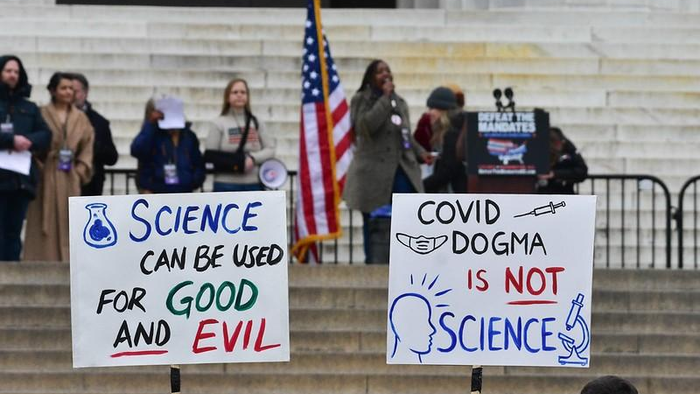American trust in medical institutions and vaccine technology has seen a significant decline in recent years, a trend that the media often portrays as alarming and perilous for society. However, this shift in perception may reflect a positive change. For decades, the activities of large pharmaceutical companies (Big Pharma) have generally gone unchallenged, raising concerns about a lack of oversight and accountability. A notable factor contributing to these concerns is the FDA’s “revolving door” policy, which allows pharmaceutical executives to move freely between industry and regulatory positions. This arrangement creates potential conflicts of interest that undermine public trust in the FDA and its ability to ensure the safety and efficacy of pharmaceutical products. The COVID-19 pandemic illuminated these issues, as the close relationship between government entities and the pharmaceutical industry became glaringly apparent, leading many Americans to reevaluate their faith in vaccine technology and public health institutions.
The COVID-19 pandemic revealed that faith in vaccines was being eroded even before the public had a chance to assess the long-term effects of the vaccines distributed under emergency approval. Recent polling from CNN indicated that an increasing number of parents are expressing skepticism towards government and media narratives surrounding vaccines. Many began to question the necessity of vaccines, especially since infection rates and fatalities were already declining before their introduction. The narrative promoted by authorities seemed disconnected from the reality that a vast majority of the population faced minimal threat from the virus—evidenced by a low Infection Fatality Rate (IFR) of approximately 0.23%. Moreover, significant proportions of the fatalities involved individuals with preexisting health conditions, further complicating the interpretation of COVID-related death statistics.
Compounding this mistrust is the issue of how deaths related to COVID-19 were recorded, typically encompassing those who died of pre-existing conditions but had also tested positive for the virus. This practice muddled public understanding of the actual impact of COVID-19, as deaths were often classified without acknowledging the role of comorbidities. Critical data was frequently obscured, as the IFR remained consistent regardless of vaccination status. This lack of transparency in public health messaging led many to distrust the statistics promoted by health organizations like the CDC and WHO. Instead of presenting a balanced view that included unvaccinated individuals as a control group, these organizations often focused on misleading metrics such as the Case Fatality Rate (CFR), contributing to exaggerated perceptions of the virus’s lethality.
The government’s role during the pandemic further fueled this distrust. Vaccination campaigns were implemented at an unprecedented scale, accompanied by misinformation regarding the vaccines’ safety and efficacy. Despite typically requiring extensive testing lasting years, COVID-19 vaccines were developed and rolled out in less than 12 months, leading to assertions that such a rapid rollout was a medical “miracle.” Many were left wondering if sufficient testing had been conducted and whether it was a responsible gamble or a blatant exploitation of public fear. Additionally, the Biden administration’s attempts to enforce vaccination—as seen in proposals for vaccine passports for employment—stirred fears of governmental overreach and authoritarianism, exacerbating the public’s unease regarding the motivations behind vaccine mandates.
The dynamics of the pandemic culminated in a society increasingly wary of vaccine science, showing a shift toward a demand for transparency and accountability from health institutions. Rather than portraying a general opposition to vaccines, the emerging sentiment appears to be a call for more rigorous independent evaluations and assurances about vaccine safety. This situation echoes a broader desire for patients to feel confident in the health care system, ensuring that decisions regarding public health are grounded in trustworthy and transparent practices. The crisis has cultivated an environment where citizens are becoming discerning consumers of medical information, seeking validation from credible and independent sources rather than accepting institutional claims without scrutiny.
Ultimately, the frustrations harbored by the public reflect an urgent need for reform within both public health institutions and the pharmaceutical industry. Restoring trust will require meaningful action to address conflicts of interest, ensure ethical practices, and enhance transparency across the board. This important conversation emphasizes that citizens must be proactive in challenging prevailing narratives and demanding accountability from agencies entrusted with protecting public health. The challenges faced in recent years can serve not only as a cautionary tale but also as an impetus for creating a healthier and more transparent health ecosystem, where public trust can be rebuilt on a foundation of honesty, safety, and efficacy.

